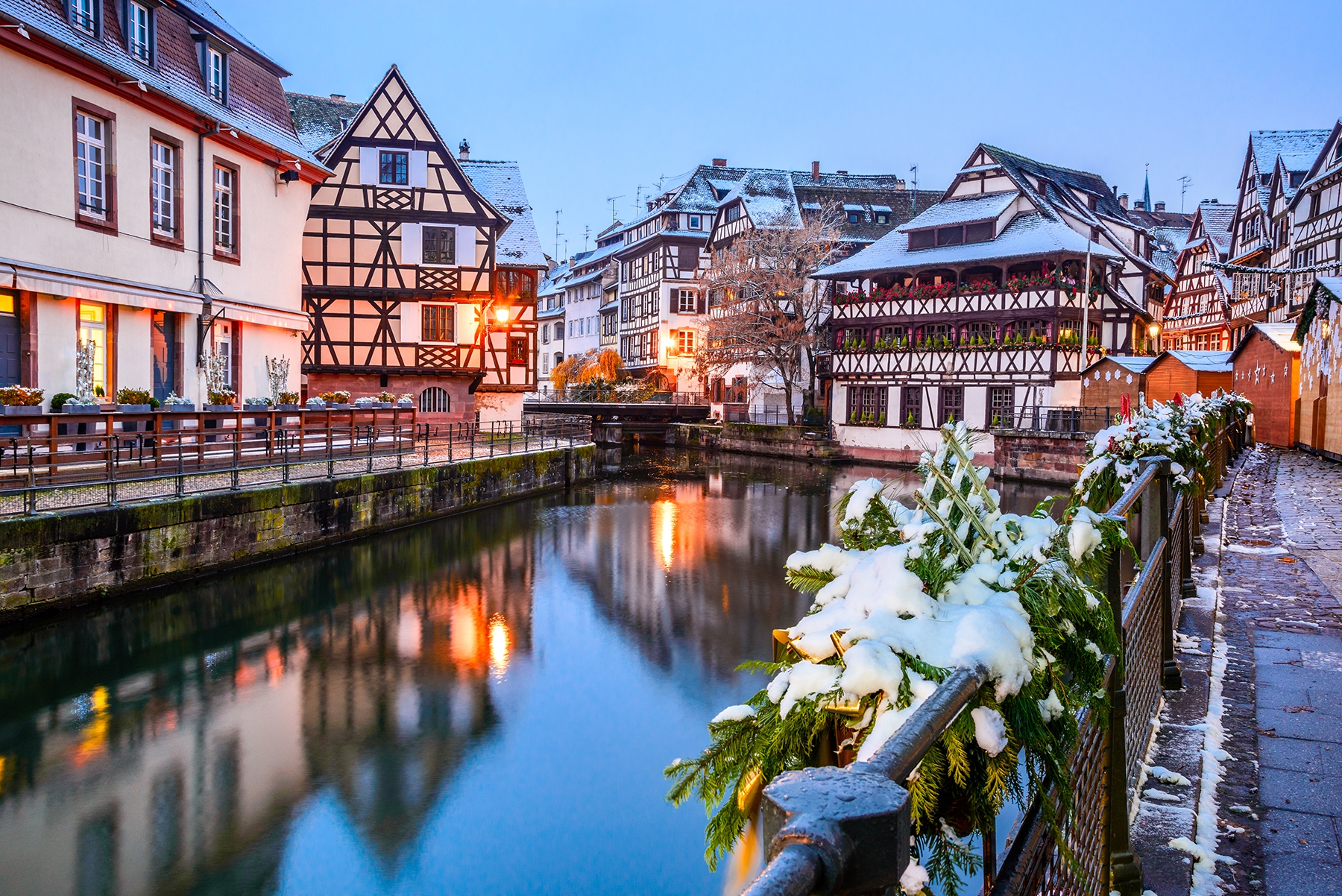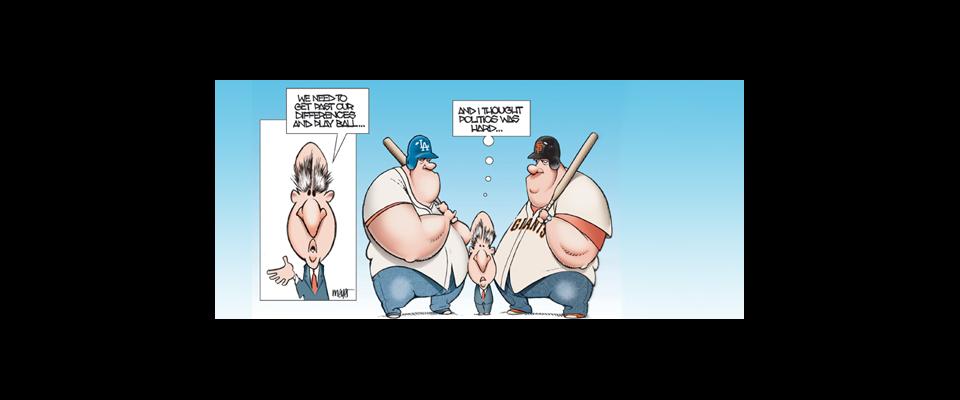Geography as judgment in the great North-South divide.
As if there is not enough prejudice in the world, we have to bring geography into the mix. Why can the site of our home—where we were born, grew up, or moved to—be considered the reason for both our intelligence and morality, or lack thereof? And why are North and South such rallying stations? Read on.
Perhaps the only nonjudgmental North/South geographic phrases are celestial: northern lights, Southern Cross. The jury’s still out on Southern Comfort. It is earthbound reckonings that call for condemnation and/or self-importance, and according to my decidedly subjective survey, they exist around the world.
A Long Island diner waitress I interviewed for my book Hey, Waitress! The USA from the Other Side of the Tray (UC Press 2002) told me that because she is of northern Italian heritage, education meant a lot to her family—as opposed to her slacker ex-husband, whose background was southern Italian.
If one travels from Italy north to Germany, similar assumptions hold, or did on my last trip there. Those straightforward Prussians in Berlin and surrounding areas can be relied on, but Mensch! go south to Bavaria, and it’s a little too much party time, mit Bier.
I wondered if the same North–South assumptions held true in South America. A friend who lives in Argentina told me that there are many “regional nuances,” but the most defined differences are between residents of Buenos Aires, who make up roughly a third of Argentina’s population, and everyone else. The BA folks consider their city the center of the Argentinean universe, and themselves superior to the “provincials” outside it. Well, that is certainly not the first or last urbanista-vs.-rube equation in any nation.
I asked a Chinese-born friend, too. She said prejudices there are province-to-province and city-to-city; north and south placements are irrelevant.
My limited world survey comes back home.
Apart from North and South Korea, which is a whole other story, the United States may have the greatest North–South divide of any country on earth. Presidential wit John F. Kennedy famously described Washington, D.C., as a city of northern charm and southern efficiency. When D.C. is blanketed by a blizzard and finds it has more magnolia trees than snow plows, at least the second half of the slam holds.
The divide is unquestionably political. As Maureen Dowd of The New York Times noted a while back, when Maryland votes to allow same-sex marriage in the same week that Virginia votes to ban homosexual couples from adopting children, the Potomac River dividing them seems wider than ever.
The North–South divide didn’t begin but became all but permanent in the Civil War. The North: against slavery. The South: for slavery. States’ rights? Please. Anyone reading a dollop of history knows that “states’ rights” translated as the right to own slaves, so let us dispense with such detours.
The legacy from that horrid time certainly remains, however illogically. As someone from Yankee stock, I’ve long felt relief—which is way short of superiority—that my family was from the North, fought for the North, and that my relative Jason M. Case, whose elaborately framed discharge certificate I have, was with the Connecticut volunteers. (Family lore is that he ran away from home to be a drummer boy.)
Looked at objectively, what genetically behavioral connection could there possibly be between Jason and me? There is nothing objective at all about North/South affiliations that turn citizens into repositories of others’ and their own expectations. So, subjectively, I am glad to be a Yankee.
I’ve spent years among Native Americans—conducting interviews for Indian Voices: Listening to Native Americans (Rutgers University Press)—and have never picked up even a hint of any such geographic division. Native people do refer to tribal differences all the time, though.
“Oh, those Apaches!”
“The Pomos don’t welcome those of us from other tribes.”
“You calling me a Kiowa?”
“The Navajos take everything from us Hopis.”
But the Native people I know do not get into surveyor-type differences. And these days, when Natives speak English, as most do, southern Indians have southern accents, New England Indians have New England accents, and so on. (I wonder if Native speakers reflect the English accents around them. Can the Choctaw language, for example, sound Oklahoman? Well, another dissertation subject at the ready.)
There is geography in Native belief, though. For example, in mentioning six cardinal directions, east, west, north, south, up, and down, Natives honor the eagle in part because it is believed to fly closest to the Creator.
Other cultures’ ideas of putting a church or monastery or other place of worship high on a hill or mountain—supplanted, if no mountains were near, by spires—to be closer to God or the gods, made upwardness or northern-ness more sanctified.
Is that where the North–South divide started, with an urge to seek the inexplicable in the heavens? Or could it have begun with the human body? Isn’t it nobler to be ruled by your head or your heart, rather than by your reproductive equipment? For extra credit: Does nobility trump sexuality?
On that rhetorical note, let us focus on California.
The stereotype of the North is simple, or simplistic: liberal, progressive. The stereotype of the South is not so simple: flashy, conservative. Say what? How do you put Hollywood and Orange County in the same column? Surely I am not the first to suggest that the massive born-again churches of glitz are the apotheosis of Southern California’s nonfraternal twin trademarks of flash and conservatism.
Down on the ground, the Bears and Bruins, ursine kin that they are, generally avoid North–South rivalry equations. And Cal and UCLA would certainly join paws over their sentiments regarding a certain private university located between them.
But we, the unteamed, do comment on the SoCal–NorCal divide constantly, or so it seems to me.
“Oh, the smog! How do they live there?”
“Oh, look at those outfits! How very LA!”
“Listen to that Valley talk!”
And so on.
At the same time, I hear echoes wafting north:
“Oh, those Bay Area foodies! Can’t they just eat their artisanal kale and shut up?”
“Oh, San Francisco, cute little place, but who needs that fog? And where can you swim? And what do they do?”
Such surface snipes, however, are moderate in comparison to the value judgments that seem to lurk beneath. Which place, Northern California or Southern California, is better? (“Better” meaning “more enterprising.”) Which takes itself more/less seriously? Which is more humane? More tolerant? Better educated? What next, healthier? Has more style? Is happier? Has a better sense of humor? Has a better bike or recycling or indie film or container gardening culture? Flosses more regularly?
I contend that the jury is not only out, but is arguing a debate that no side can win. Rather than trying to deconstruct centuries of migration patterns into a moral premise, let us call a North–South truce in thought, word, and deed, and move on to more philosophically trenchant issues. Item one: the differences between Easterners and Westerners.


















